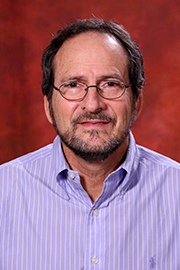CONTACT: Doug Carlson (850) 694-3735 or
Luckey Dunn, M.D., (386) 506-4700
By Doug Carlson
June 20, 2007
DAYTONA BEACH, Fla. − Starting July 2, Volusia County residents visiting the same physicians they’ve gone to for years might be greeted in the waiting room for the first time by a sign indicating that their doctor is now a teacher.
Next week is the official beginning of the Florida State University Regional Medical School Campus – Daytona Beach, which is in the process of selecting more than 150 area physicians to teach eight clinical specialties: family medicine, internal medicine, pediatrics, geriatrics, obstetrics/gynecology, psychiatry, surgery and emergency medicine, as well as a variety of fourth-year electives.
The initial eight third-year medical students, who will be training in the Daytona Beach area for the next two years, are the first wave in what will grow to a group of 20 new medical students a year. At full capacity, the medical school’s Daytona Beach campus will be home to 20 third-year students and 20 fourth-year students, for a total of 40 students. Students complete the first two years of their education on the FSU campus in Tallahassee.
Area physicians who have joined the FSU College of Medicine faculty are as excited as the students.
“We’re looking forward to teaching the next generation. I know that sounds maudlin, but it’s what we were told to do when we were in medical school – go out and teach,’’ said Dr. Pam Carbiener, a Daytona Beach obstetrician/gynecologist and former president of the Volusia County Medical Society. “Those of us who didn’t stay in academic medicine missed that and this is an opportunity to teach that many of us are so thankful for,’’ she said.
Dr. Carbiener will serve as clerkship director in obstetrics/gynecology for students at the Daytona Beach campus.
Perhaps the greatest impact of the program will be in helping Daytona Beach area hospitals, medical practices, health departments and other health-care facilities recruit future doctors. In the Daytona Beach area, FSU is affiliated with Halifax Medical Center, Florida Hospital Ormond Memorial, Florida Health Care Plans and Florida Hospital DeLand.
“I think our students will find many advantages to living and working in Volusia County,’’ said Dr. Luckey Dunn, who served as medical director for the city of Daytona Beach for 14 years and now is regional campus dean for the College of Medicine’s Daytona Beach campus.
“At the same time, I think the students’ presence will benefit the local medical community right now,’’ Dunn said. “I think it will light the fire for their passion for medicine. One of the physicians who has joined our faculty said to me, “Boy, I had an interesting case the other night. I wish one of the medical students had been there to share it with.’’’
The medical school also is launching a new regional campus this week in Fort Pierce for third- and fourth-year clinical education.
The FSU College of Medicine was established in 2000 with a mission of educating physicians to care for Florida’s rural, geriatric, minority, and other medically underserved populations. With three graduating classes to date, the college has produced 111 doctors who currently are completing three to five years of required residency training.


